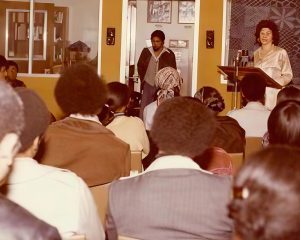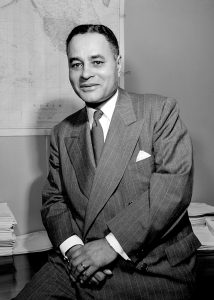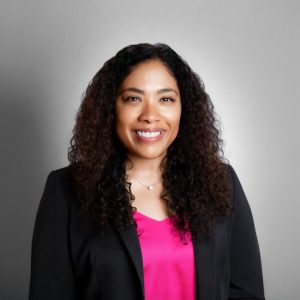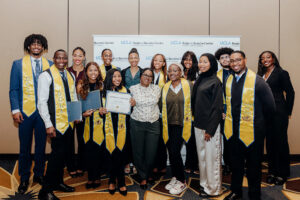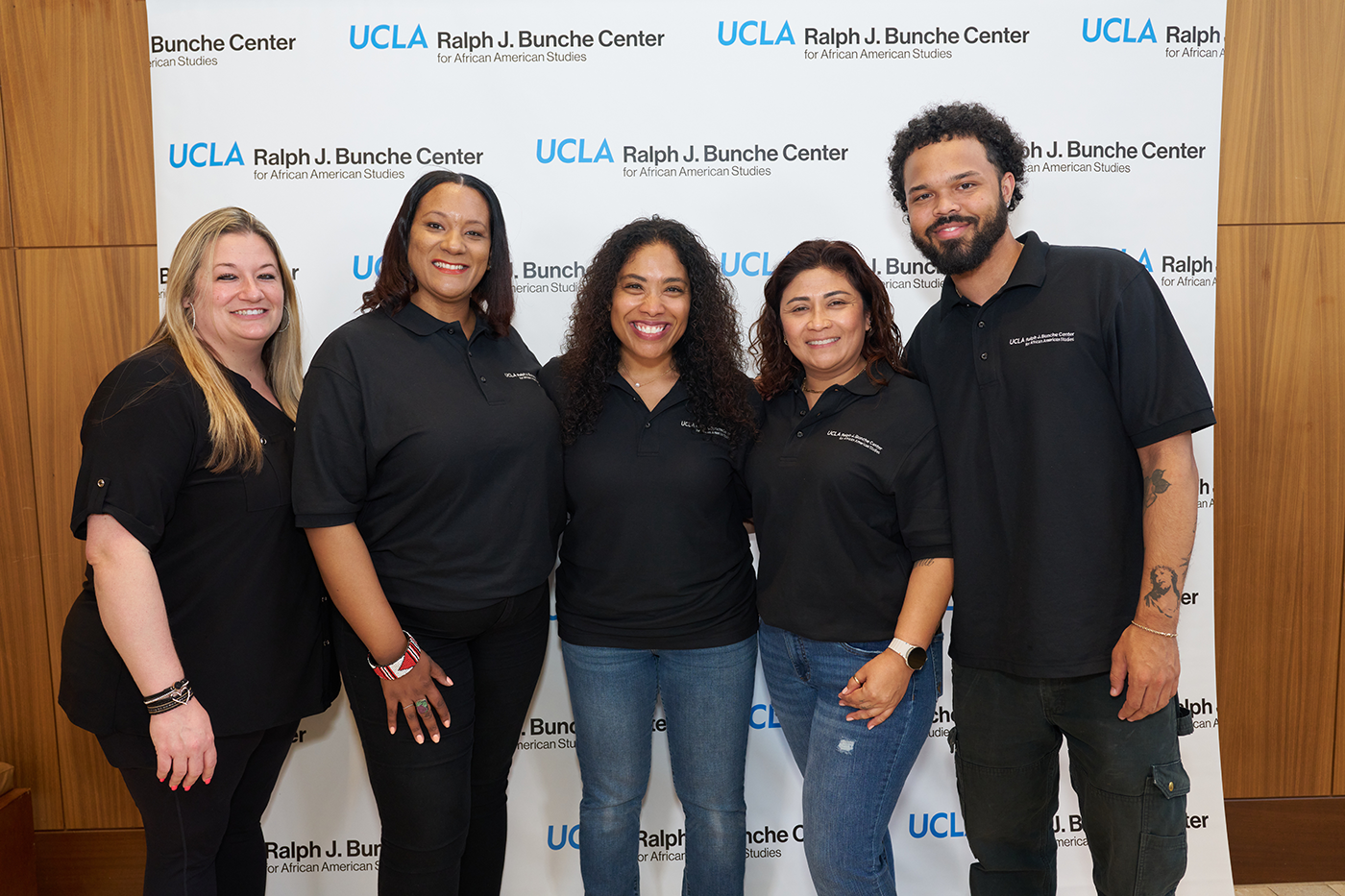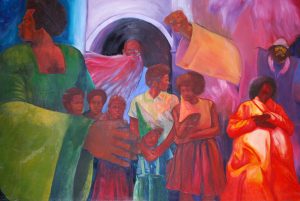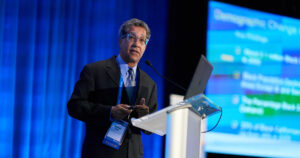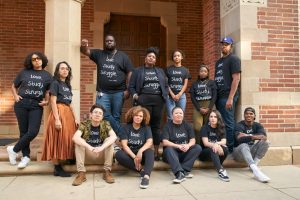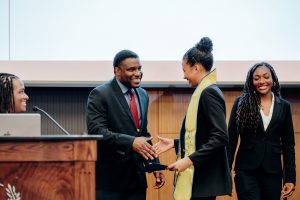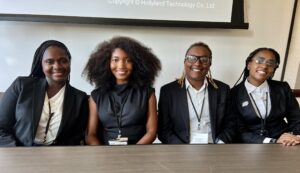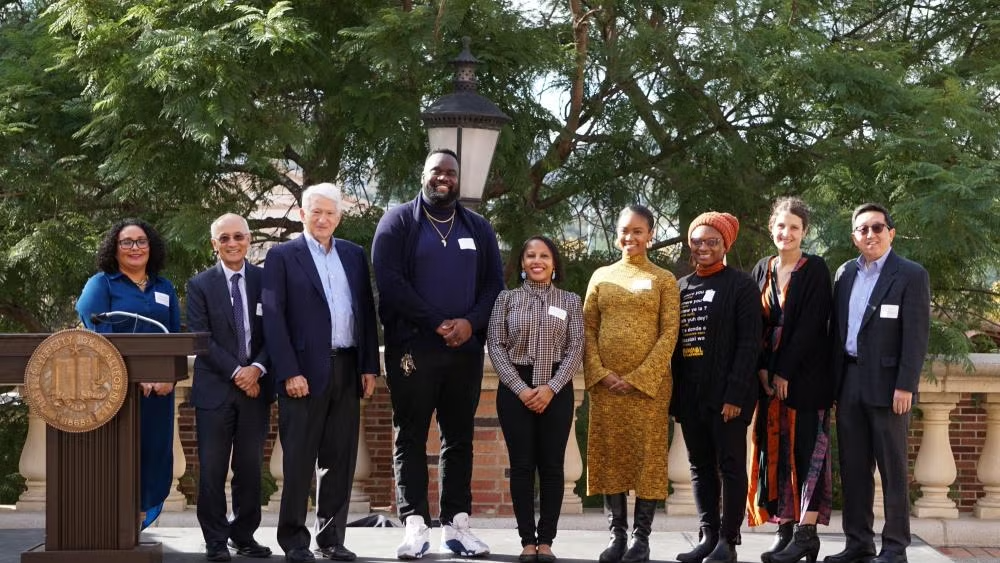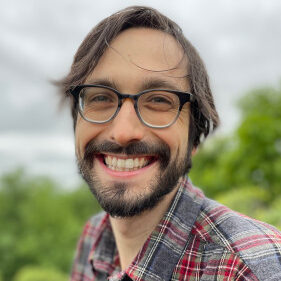In 2019, the Ralph J. Bunche Center for African American Studies partnered with the UC President’s Postdoctoral Fellowship Program (PPFP) to offer up to two (2) Postdoctoral fellowships per academic year. The purpose of this postdoctoral fellowship program is to advance excellence through a commitment to diversity and equity in the fields supported by the Bunche Center.
As a part of the UCLA Rising to the Challenge initiatives, the Bunche Center will administer the selection of five UCLA Chancellor’s Postdoctoral Fellows, whose research focuses on Black life and the Black experience. UCLA Chancellor’s Postdoctoral Fellows will be appointed broadly across departments and campus units and will work directly with their prospective UCLA faculty mentor. These Chancellor’s Postdoctoral Fellows will be affiliated with the Bunche Fellows Program. The Bunche Center is excited to move forward with developing the first round of this transformative 5-Year UCLA Chancellor’s Postdoctoral Fellows initiative (2020-2021 to 2024-2025).
The UCLA Office of Research and Creative Activities and the UCLA Institute of American Cultures (IAC), with the UC President’s Postdoctoral Fellowship Program, will offer up to four (4) Chancellor’s Postdocs at UCLA (with a possibility of renewal for a second year). These fellows will form a cohort and be affiliated with the IAC’s organized research units: the American Indian Studies Center, the Asian American Studies Center, the Bunche Center for African American Studies, and the Chicano Studies Research Center. Learn more about the UCLA Chancellor’s Postdoctoral Fellowship (Research and Creative Activities and Institute of American Cultures).
To be considered for the Chancellor’s Postdoctoral Fellowship, all interested candidates must first apply to the PPFP. Fellows are selected from a list of PPFP applicants who were ranked as alternates or unranked finalists and had indicated potential mentors at UCLA. CPFs participate in all PPFP activities and are entitled to the UC hiring incentive. Selections will be made in the spring, with fellows beginning the fall of the next academic year.
For more information, visit ppfp.ucop.edu/info/how-to-apply/.
